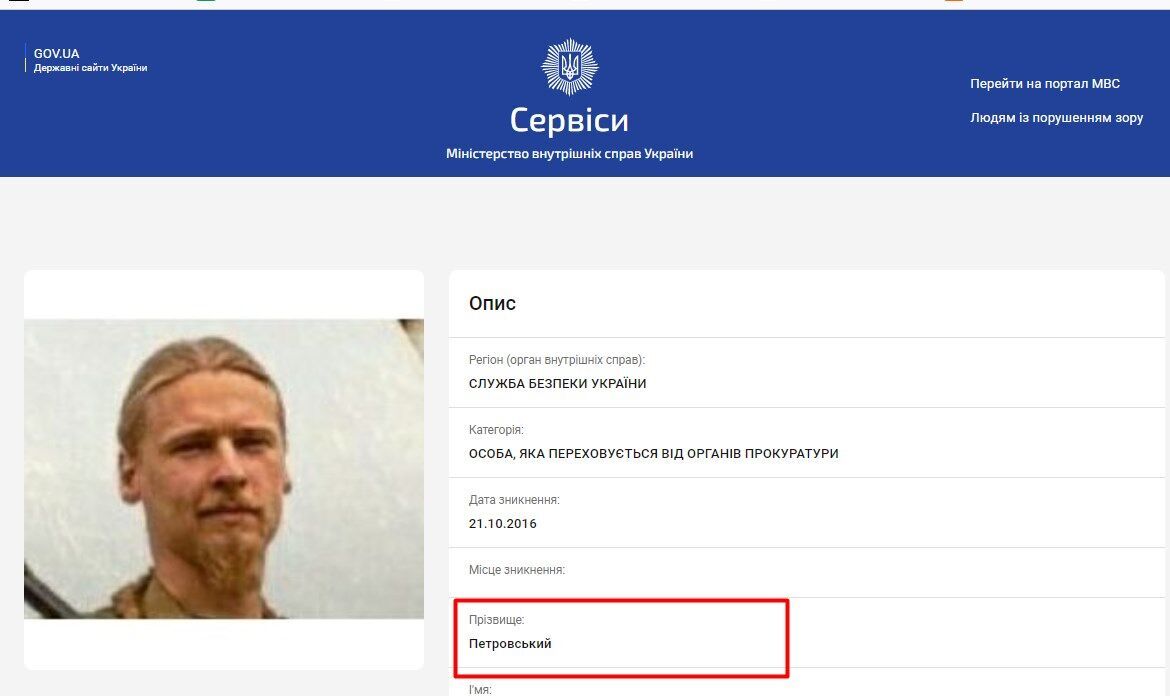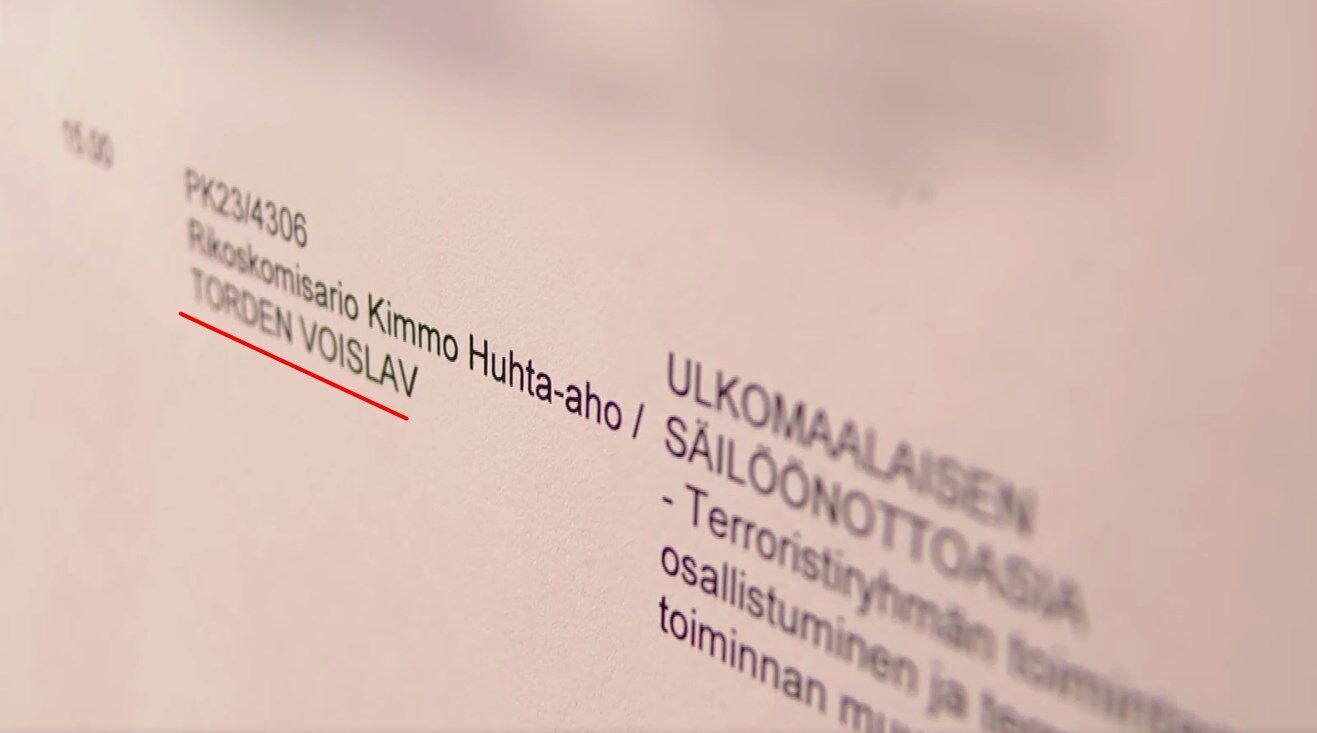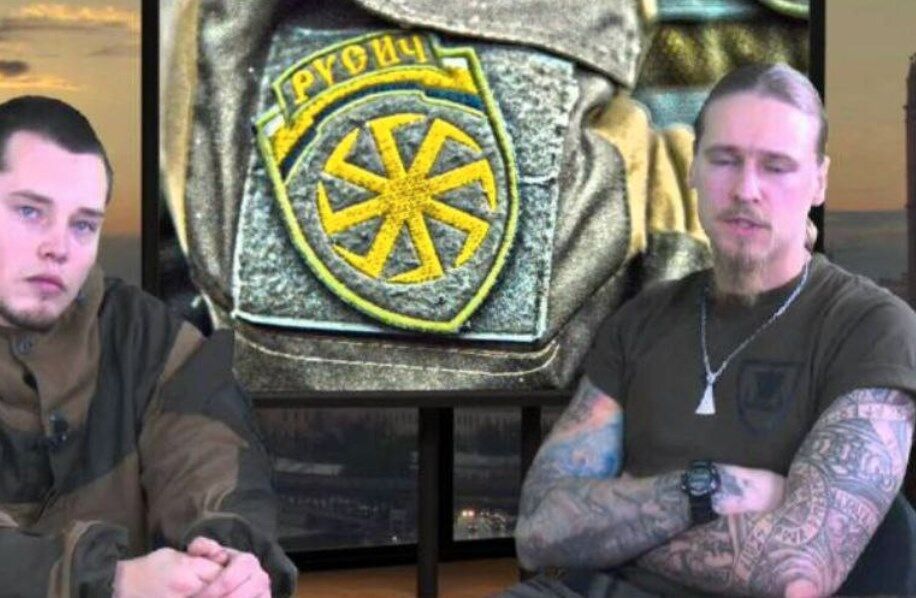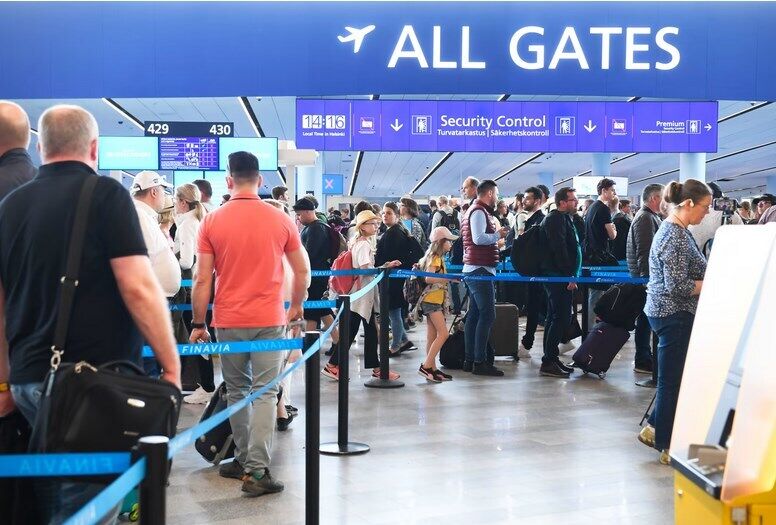Военные преступники из подконтрольных Кремлю террористических формирований, которые убивали украинцев, выезжают в страны Европы под другими именами. Оккупанты надеются, что таким образом они могут обмануть иностранные спецслужбы и Интерпол, но все оказалось не так просто.
Убийца с видом на жительство в стране НАТО
Одним из самых громких случаев последнего времени стало задержание в Финляндии российского неонациста из диверсионно-штурмовой разведывательной группы «Русич» Яна Петровского.
Его «стопнули» перед вылетом из главного международного аэропорта Финляндии – Хельсинки-Вантаа через день после его выезда из России. Причем по подозрению не в военных преступлениях, а в нарушении миграционного законодательства.
Бдительные финские пограничники решили пробить по базам с фото мужчину с паспортом РФ и видом на жительство в Финляндии. Тогда и выяснилось, что это Ян Петровский (также известен как «Славян» из ДШРГ «Русич»), который находится под западными санкциями и которого разыскивает Украина. Ранее Петровскому был запрещен въезд в Норвегию и Чехию. Этот запрет распространялся на всю Шенгенскую зону, в которую входит и Финляндия.

Петровского определили в центр временного размещения, где содержатся в том числе лица, обратившиеся за получением политического убежища.
Оказалось, что российский неонацист действительно имел вид на жительство в Финляндии сроком на один год, но под именем Воислав Торден. Спустя месяц его перевели в тюрьму в городе Вантаа и уведомили об этом российское посольство.

«Петровский надеялся «пропетлять»: он даже не обращался за помощью в посольство РФ, чтобы все было тихо. Рассчитывал на помощь местного адвоката. А запаниковал уже тогда, когда возникла угроза экстрадиции в Украину и его определили в тюрьму», – рассказал сотрудник одной из украинских спецслужб.
По его словам, только в конце августа российский неонацист связался с посольством и «дал отмашку своим соратникам на поднятие шумихи в сети». После этого последовало заявление ДШРГ «Русич», что пока Петровского не выдадут России, их группировка «прекращает выполнение любых боевых задач».
«Захотели ушли, захотели пришли. Контракты давно кончились, свои обязательства за это время мы выполнили (а свыше оговоренной нормы мы никому не обязаны)», – говорится в Telegram-канале террористов.

В Финляндии разразился грандиозный скандал: ведь Петровский фигурирует в западных санкционных списках и разыскивается Украиной из-за многочисленных преступлений на территории Донецкой и Луганской областей в 2014-2015 гг.
«Местные форумы просто пестрели яростными сообщениями финнов, которые были возмущены: как так, что российские оккупанты спокойно разгуливают по территории их страны (причем страны НАТО). Более того, имеют тут вид на жительство», – рассказала OBOZREVATEL украинка Евгения, которая живет в Финляндии.
Сейчас финское правительство и власти пытаются найти объяснение тому, как такое оказалось возможным и каким образом можно предотвратить подобные ситуации. Премьер-министр Петтери Орпо заявил, что этот инцидент побудил Финляндию оценить пограничные угрозы.
Финские СМИ сообщают, что «на первый план вышло улучшение информационного обмена между органами власти», которое позволит предотвратить получение виз российским преступникам. Также идет речь о новых ограничениях на выдачу виз.
Тем временем Петровский, экстрадицию которого затребовала Украина, чтобы судить за многочисленные преступления, прямо из тюрьмы обратился к властям Финляндии за политическим убежищем. Правда, всерьез рассчитывать на это террористу вряд ли приходится, судя по всему он просто намерен затянуть дело. Расчет на то, что пока запрос рассматривается, то в Украину его не экстрадируют.
В Офисе генерального прокурора сообщили, что еще в 2016 году Яну Петровскому сообщено о подозрении по факту его участия в террористической организации (ч. 1 ст. 258-3 УК Украины) – за это ему грозит до 15 лет лишения свободы.
В частности, Петровский и второй основатель «Русича» Алексей Мильчаков фотографировались рядом с горящими телами украинских солдат. А уже во время полномасштабной войны они призывали убивать украинских детей, так как те «вырастают и мстят за родителей».

Также российский неонацист ранее признавался в убийстве шести украинских военнопленных. Они были захвачены оккупантами в бою под Луганском 5 сентября 2014 года.
В переводе Петровского в тюрьму Вантаа сыграло роль тесное сотрудничество Украины с Европолом. В Офисе генпрокурора рассказали, что получили информацию о возможной депортации Петровского в РФ, а это сделало бы невозможным его выдачу Украине. Потому 15 августа 2023 года прокуроры направили в Финляндию всю необходимую информацию для обеспечения ареста. Теперь надежда на выдачу российского преступника Украине, чего, конечно, он очень боится.
Кто рвется в Европу
Думать, что Ян Петровский – единственный российский военный преступник и террорист, кому удалось въехать в Европу, ошибочно. Убивавшие украинцев оккупанты получают в России и Беларуси новые паспорта на другие имена, которые, конечно же, не фигурируют в розыскных базах.
Ранее об этом заявлял и беларуский оппозиционер, руководитель Народного антикризисного управления, заместитель руководителя Объединенного переходного кабинета РБ Павел Латушко. По его информации, новые паспорта получают, в частности, «вагнеровцы».
По словам собеседников в украинской разведке, несмотря на то, что говорить о массовости не приходится, тем не менее это является серьезной угрозой для стран Европы.

«Если одни преступники просто хотят затеряться, то другие могут легализоваться в той или иной стране, а затем их задействуют для совершения терактов и диверсий», – говорит офицер.
Учитывая то, как российские спецслужбы и военная разведка активизировали работу в Европе, сомневаться в этом не приходится. Причем главная цель страны-агрессора – помешать оказанию военной помощи Украине.


